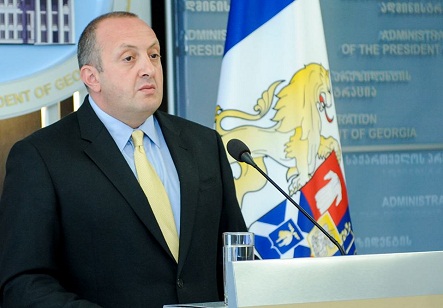President Margvelashvili vetoes Government-backed surveillance bill

Georgia’s President Giorgi Margvelashvili has vetoed the Government-backed bill on surveillance that allows the Ministry of Internal Affairs (MIA) to retain ‘key’ access to surveillance.
The draft-bill was approved by Parliament at its third and final reading yesterday after 73 Members of Parliament (MPs) voted in favour and 30 voted against.
The President proposed an alternative version of the draft bill, which noted the MIA should be deprived of capabilities of having direct access to telecom operators’ networks, or the "key”.
The President said the ‘key’ should be with the court. The court can also issue warrants for law enforcement agencies to allow them to lawfully monitor communications.
"First of all I want to express my satisfaction by the heavy discussions that took place about the draft. Everyone involved – different political forces and the civil sector - tried to contribute to the discussions about surveillance through their active involvement that was for the country’s better future. Unfortunately we failed to find a balance between [protecting] human rights and state security issues,” said Margvelashvili.
The Personal Data Protection Inspector, under Margvelashili's proposed scheme, will remain as an institution who provided oversight through technical and electronic means, over law enforcement agencies’ surveillance activities.
"It means that surveillance will be carried out by the authorized bodies and a permit for this – which is actually turning a ‘key’ for carrying out surveillance, will be made by the court. The Personal Data Protection Inspector will provide an oversight over this process,” Margvelashvili said.
"This is a model where the functions are distributed appropriately, and which provide for an adequate balance between protection of the human rights and state interests.”
Georgia's Members of Parliament are now capable of overriding the President’s veto. This can only happen if 76 people vote to override his decision.
This was the second time President Margvelashvili used his veto power.
Previously he vetoed a bill to extend the deadline for discussing the issue of Interior Ministry’s direct access to telecom operators’ networks for four months and instead gave Parliament a strict deadline of December 1. At the time, Parliament had to accept the President’s proposal.
 Tweet
Tweet  Share
Share